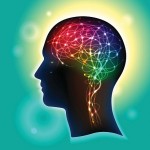Schizophrenia in elderly, managing old age psychotic disorder
 Managing the psychotic disorder schizophrenia in the elderly is important but also faces many challenges. Anyone at any age can experience schizophrenia, but age can be a large factor in the effectiveness of treatment. For example, antipsychotic drugs can pose adverse effects in the elderly, even though they can have minimal side effects in younger patients. For this reason, it becomes more challenging to treat schizophrenia in the elderly.
Managing the psychotic disorder schizophrenia in the elderly is important but also faces many challenges. Anyone at any age can experience schizophrenia, but age can be a large factor in the effectiveness of treatment. For example, antipsychotic drugs can pose adverse effects in the elderly, even though they can have minimal side effects in younger patients. For this reason, it becomes more challenging to treat schizophrenia in the elderly.
Research has shown that the use of antipsychotic drugs should be lower when used in the elderly in order to minimize adverse side effects.

Aging and schizophrenia
It has been shown that schizophrenia speeds up physical aging in comparison to the general population. It has also been shown that the average life span of a person with schizophrenia is 20 to 23 years shorter than the general population. Basically, a schizophrenic person in their 40s and 50s will have comparable health to a person in their 60s and 70s.
Difference between early-onset, late-onset and very late-onset schizophrenia
and Very Late-Onset Schizophrenia-Like Psychosis
“A closer look at the defining characteristics.”
Schizophrenia
Schizophrenia
(e.g., strokes, tumors) Absent Absent Marked Neuropsychological impairment:
Learning
Retention Marked
Absent Present
Absent Probably marked
Probably marked Progressive cognitive deterioration Absent Absent Marked Family history of schizophrenia Present Present Absent Early childhood maladjustment Present Present Absent Risk of tardive dyskinesia Present Present Marked Daily neuroleptic dose High Lower Lowest
Difference between early-onset, late-onset and very late-onset schizophrenia. Download comparison chart (JPG)
Adapted from Palmer BW, McClure FS, Jeste DV. Schizophrenia in late life: findings challenge traditional concepts. Harv Rev Psychiatry 2001;9(2):51-8.
Risk factors for schizophrenia in older people
Risk factors for schizophrenia in older people include:
- Family history
- Sensory deficits
- Social isolation
- Premorbid personality disorder
- Neuropsychological abnormalities
- Being female
Causes and symptoms of schizophrenia in the elderly
 As with many mental disorders, there is no exact pinpointed cause of schizophrenia but several factors come into play. Genes, chemical imbalances in the brain, family relationships, environments and the use of drugs are all factors that can contribute to the onset of schizophrenia.
As with many mental disorders, there is no exact pinpointed cause of schizophrenia but several factors come into play. Genes, chemical imbalances in the brain, family relationships, environments and the use of drugs are all factors that can contribute to the onset of schizophrenia.
Symptoms of schizophrenia include:
- Delusions
- Hallucinations
- Disorganized thinking
- Disorganized and abnormal motor behavior
- Negative symptoms – lack of ability to function normally, lack of emotion, lack of expression, etc.
Treatment of schizophrenia in the elderly
 With proper treatment individuals with schizophrenia can live a normal life and, even though there is no cure, symptoms can be well-managed. Medications are often diagnosed to relieve hallucinations and delusions. Antipsychotics, in particular, can help with any chemical imbalances in the brain. Unfortunately, as with any medication there is the risk of side effects – especially in the elderly.
With proper treatment individuals with schizophrenia can live a normal life and, even though there is no cure, symptoms can be well-managed. Medications are often diagnosed to relieve hallucinations and delusions. Antipsychotics, in particular, can help with any chemical imbalances in the brain. Unfortunately, as with any medication there is the risk of side effects – especially in the elderly.
Common side effects experienced by the elderly due to the use of antipsychotic drugs are:
- Uncontrolled movements
- Weight gain
- Drowsiness
- Dizziness
- Restlessness
- Dry mouth
- Constipation
- Nausea
- Vomiting
- Blurred vision
- Low blood pressure
- Seizures
- Low white blood cell count
- Sexual dysfunction
There are non-drug treatments, too, like seeking out therapy, either one-on-one or group-based. Different types of therapy to treat schizophrenia include:
- Cognitive behavioral therapy
- Self-help groups
- Family therapy
- Rehabilitation
- Integrated substance abuse treatment
By integrating a combination of medical and non-medical treatments a person with schizophrenia can very well live a normal life.
Human throat microbes linked with schziophrenia
Schizophrenia is a condition which affects a person’s ability to think, reason, feel and distinguish what is real and what is imaginary. A person with schizophrenia may also have trouble in social settings. Continue reading…
-
3 Easy Exercise Tips To Help You Lose Weight
We all have a pretty good idea of what it takes to lose weight and mai
-
Why Keeping a Food Journal Can Help You Lose Weight
Research studies have shown that keeping a food and ac
-
How to Make Really Hot Tortilla Soup In A Blender Utilizing One of The Worlds Best Juicers (The Vitamix 5200)
You heard right, dont adjust your computer monitor. You can make cr
-
Exercise for the Busy Mom
My house is probably a lot like yours. F
-
Why Conventional Diets Dont Work Longterm
The obesity problem is growing, even though we have more diets? availa
-
I Cant Lose Weight - Is There A Diet That Works?
This is the same question I used to ask
- DON'T MISS
- 7 Tips To Stop Overeating
- Utilizing Genuine Hoodia for Quick Real Outcomes
- Copy Three Healthy Habits of Slim Fit People
- Controlled Diet Helps In Losing Weight
- Enjoy The Benefits From Weight Loss
- Body Building Initiation
- The Disadvantages of the “Quick Weight Loss Diets” Trend
- Shed Those Extra Pounds with Soups
- Best Quick Weight Loss Pill
- 30 Day High Intensity Workouts And Weight Loss Plans




